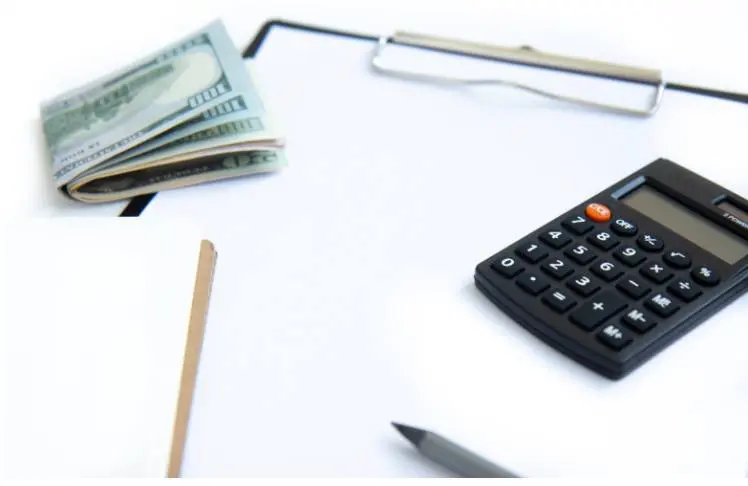Finances FYI Presented by JPMorgan Chase
In today’s economy, many of us face an increasing burden of monthly bills. These expenses quickly add up, leaving us feeling financially strained. However, with a few practical strategies, you can cut unnecessary costs and reduce your monthly bills to achieve financial freedom and peace of mind. Here are some practical tips to help trim those expenses without compromising your quality of life.
Analyze Your Current Expenses
The first step in reducing your monthly bills is to review your recent bank statements and bills to gain insight into your spending habits. By putting them in order of highest to lowest, you can see which expenses will have the most significant impact with cuts. Focus on these first.
Create a Budget
A well-structured budget will give you a clear picture of your income and expenses, helping you identify areas where you can cut back. Start by listing all your income sources. Then, categorize your expenses, distinguishing between essential and non-essential costs. Aim to rein in your spending so you have enough left over each month to save for your long-term financial goals.
Negotiate with Service Providers
Don’t hesitate to negotiate with your service providers, such as cable, internet, and phone companies. Often, these providers are willing to offer better deals, especially if you’re a long-time customer. Shop around for better rates and packages, and be prepared to switch providers if necessary to secure more affordable options.
Review Your Insurance Policies
Insurance premiums can be a substantial monthly expense. Review your insurance policies, including auto, home, and health insurance, to ensure you’re getting the best value for your money. Adjusting your coverage or switching providers can lead to significant savings.
Downsize Your Housing
If your rent or mortgage payments are a significant portion of your monthly expenses, consider downsizing to a smaller living space or finding a more affordable location. Alternatively, you can explore options like finding a roommate, renting out a spare room, or utilizing platforms like Airbnb to generate extra income from your property.

Reduce Energy Consumption
Energy bills can be a significant monthly expense. Simple changes, like switching to energy-efficient light bulbs, unplugging devices when not in use, and adjusting your thermostat, can help lower your electricity and heating bills. Consider investing in energy-efficient appliances to save money in the long run.
Cut Back on Food Expenses
Eating out and coffee shop visits can eat into your budget quickly. Saving money on food is achievable by reducing dining out and being mindful of grocery spending. Consider cooking at home more often, preparing meals in bulk, and taking advantage of leftovers. Additionally, take advantage of sales, use coupons, and avoid impulse purchases at the grocery store to further help you trim your food expenses.
Eliminate Impulse Purchases
Impulse purchases can quickly add up and strain your finances. Practice mindfulness when shopping and take the time to ask yourself whether you need the item or if it aligns with your current financial goals. Consider using a shopping list to avoid buying unnecessary items. Wait a day or two before making non-essential purchases to determine whether you genuinely need them.
Use Public Transportation
If you live in an area with reliable public transportation, consider using it instead of owning a car. Not only will you save on fuel and maintenance costs, but you’ll also help reduce your environmental impact.
Cut Unused Subscriptions
Cutting unused subscriptions is a simple yet effective way to reduce monthly expenses. By identifying and canceling subscriptions you no longer use or need, you can free up funds for more essential costs or savings. Regularly review your subscriptions to ensure you’re not paying for services that no longer add value to your life.
Consider Consolidating Debt
Consolidating debt involves combining multiple debts into a single, more manageable loan. This strategy can simplify your financial obligations and often result in lower interest rates, reducing the overall cost of your debt. It can help you regain control of your finances and pay off your debt faster by streamlining payments.
Check Out Your Local Library
Utilizing your local library instead of purchasing books is a budget-friendly and eco-conscious choice. Libraries offer a vast selection of physical and digital books for free, allowing you to explore various genres and authors without the cost. This saves you money while promoting a sense of community and reducing your environmental footprint.
Utilize Free Resources
Saving on entertainment can be as enjoyable as it is cost-effective. Look for free concerts, events, or local performances in your community, or take advantage of free days at museums, art galleries, and cultural institutions. These frugal choices can enrich your leisure activities while keeping your budget intact.
Reducing your monthly bills and cutting unnecessary expenses is a manageable task with the right approach. Creating a budget, analyzing your expenses, and making intentional choices can free up more money for your financial goals and priorities. Remember that small changes can make a big difference, and the financial freedom that comes with these savings is well worth the effort. Take control of your finances today, and watch your money stress diminish as your savings grow.
Finances FYI is presented by JPMorgan Chase. JPMorgan Chase is making a $30 billion commitment over the next five ye
























